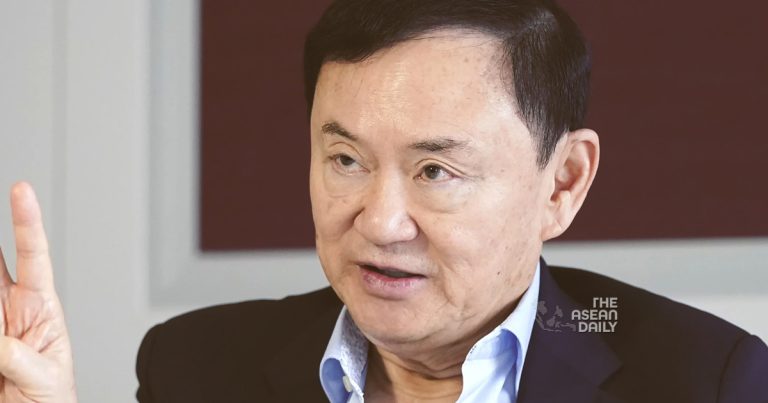15-2-2024 (BANGKOK) The Department of Probation has stated that convicted former Thai prime minister Thaksin Shinawatra may not be subjected to electronic monitoring upon his release on parole this weekend. Pol Lt Col Montri Boonyayothin, deputy director-general of the Department of Probation, explained on Wednesday that a parole committee would make the decision regarding electronic monitoring.
Typically, the committee may exempt elderly and seriously ill convicts from electronic monitoring as they pose little risk of re-offending while on parole. “Thaksin meets the special parole criteria as he is 74 years old and ill [thus he may be exempted from electronic monitoring],” stated Pol Lt Col Montri.
Thaksin has also fulfilled the special parole criteria of having served at least six months of his one-year prison term, according to the Justice Ministry. Under regulations, a convict becomes eligible for parole after serving at least one-third of their jail term or at least six months if one-third is less than six months, provided that the remaining term does not exceed ten years.
Thaksin was among 930 inmates whose release was approved by a parole committee from the Department of Corrections (DoC). The parole list was subsequently sent to the justice minister by the DoC’s director-general.
Pol Lt Col Montri explained that after Thaksin’s release on parole, he would be required to report to probation officers every month for the first four months. Afterward, he may be allowed to report to authorities every two months. However, if a probationer remains ill, probation officers will visit them at their residence.
“We will try to ensure the health of those on parole will not be affected. We will ask the parole committee to consider exempting convicts [who meet the criteria] from electronic monitoring,” stated Pol Lt Col Montri.
He further mentioned that upon release on parole, Thaksin would need a sponsor with whom he would reside. The Department of Probation is responsible for assessing the suitability of potential sponsors, determining the probationer’s intended career while on parole, ascertaining their place of residence, and evaluating their self-reliance.
The probationer must also stay within a specific area determined by the parole supervisor. If the probationer intends to travel from Bangkok to other provinces, they must seek permission from probation officials. However, leaving the country is not permitted for probationers, clarified Pol Lt Col Montri.
Regarding media appearances, probationers are allowed to appear on television programs without seeking permission from probation officials. However, they must exercise caution to ensure their statements during these programs do not cause harm to others, cautioned Pol Lt Col Montri.
Considering Thaksin’s age and serious illness, probation officials will meet with him to explain the procedures and conditions of parole prior to his release. Inmates who meet the normal parole criteria must report to probation officials in person within three days before their scheduled release on parole.
DoC director-general Sahakarn Petchnarin stated that any prison that has already contacted the Department of Probation could release convicts on parole on either Saturday or Sunday. However, if the Department of Probation is unprepared, the release may be slightly delayed.
When asked about the possibility of Thaksin’s arrest in connection with a lese majeste charge after his release on parole, Mr. Sahakarn stated that such authority rests with public prosecutors.
Thaksin still faces a criminal charge of lese majeste dating back to 2016, and the attorney-general will decide whether to indict him, as previously stated by Prayut Phetcharakhun, a spokesman for the Office of the Attorney-General. Thaksin is alleged to have defamed the monarchy through comments made during a trip to Seoul, South Korea, on May 21, 2015.




